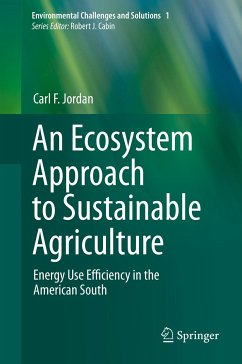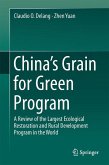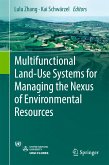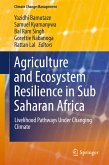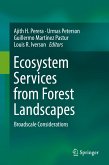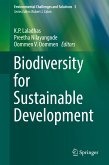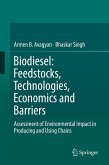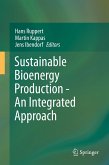The key to agricultural sustainability lies in understanding how the whole system - not just the parts - reacts to impacts resulting from energy subsidies. Because of the pollution (wasted energy) from excessive subsidies, and the increasing scarcity and cost of non-renewable energy subsidies, the most critical ecosystem property that affects sustainability is energy use efficiency, that is, energy output (yield) per unit energy input (subsidy). Increasing the energy use efficiency in agriculture may cause a decrease in gross energy output, but it results in greater net energy output. Any decline in yield from increasing energy efficiency is compensated for by decreased costs of energy inputs and pollution clean-up costs. The net result is greater long-term profit and greater agricultural sustainability.
The holistic approach to agricultural sustainability points the way toward techniques to manage farms more sustainably. It shows how substituting the services of nature - from nitrogen fixation to natural pest controls - for petroleum-based subsidies can help to achieve greater energy use efficiency. Framing solutions to agricultural problems in terms of ecosystem properties, and how solutions based on such an understanding have worked in the American South, are the basis for this book. While the focus is on this region, lessons learned from the Southern experience can be applied worldwide, thus providing alternatives to unsustainable practices. Concepts are reinforced by numerous case studies, applied tools, andexamples.
Dieser Download kann aus rechtlichen Gründen nur mit Rechnungsadresse in A, B, BG, CY, CZ, D, DK, EW, E, FIN, F, GR, HR, H, IRL, I, LT, L, LR, M, NL, PL, P, R, S, SLO, SK ausgeliefert werden.

